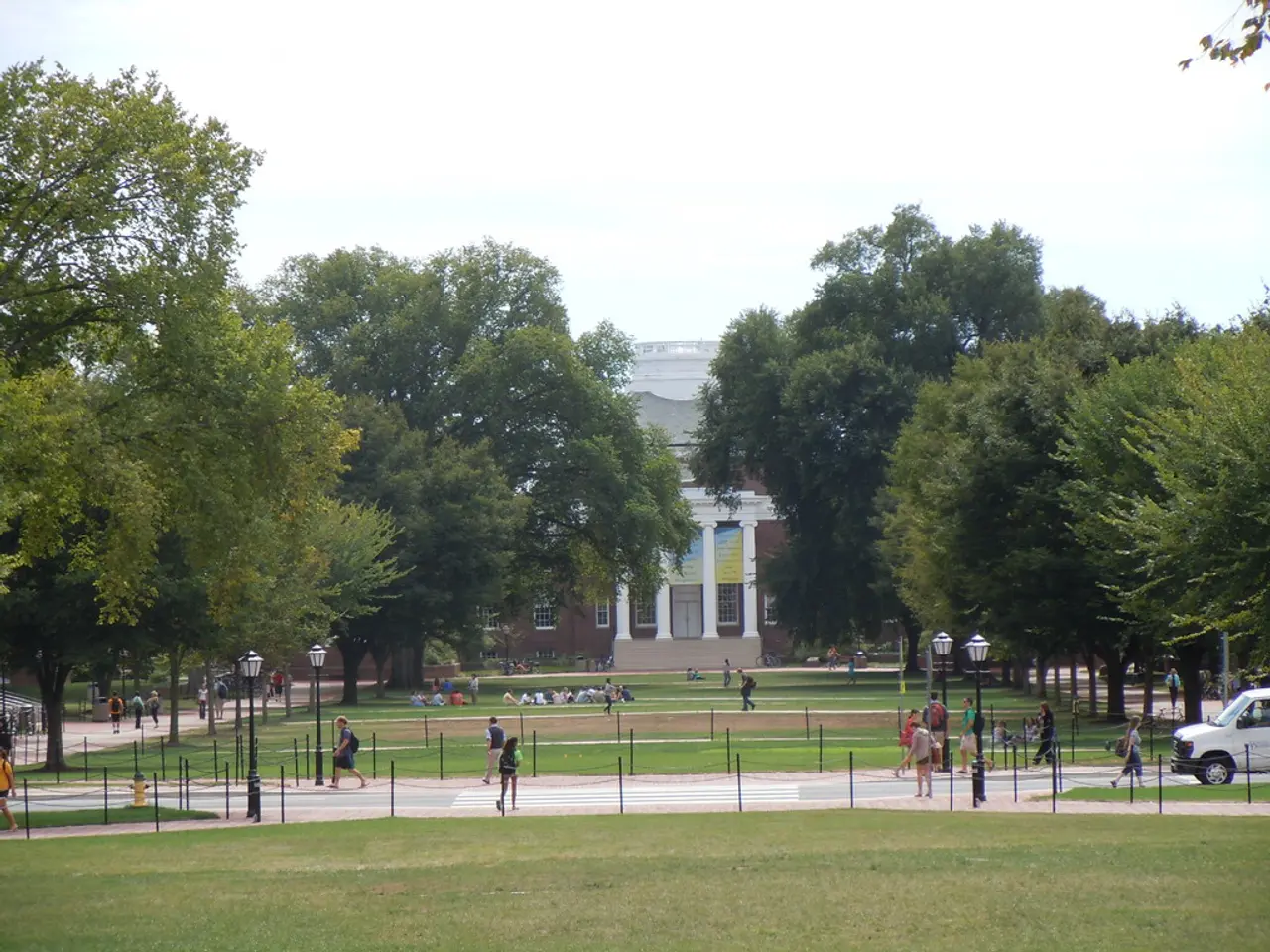Princeton's Top Course on Scientific Investigation and Written Communication: GEO/WRI 201
In an interview with Professor Emma Ljung, we delve into the world of research-based courses at Princeton, focusing on the Sophomore Research Seminars. These seminars, part of the "Research-based Courses" category, provide undergraduate students with a unique opportunity to hone their research skills and scientific writing abilities.
While the course GEO/WRI 201: Methods in Data Analysis & Scientific Writing is designed to teach students how to write an independent scientific paper, the Sophomore Research Seminars take a more hands-on approach. Students, under the guidance of Adam Maloof (GEO) and Amanda Irwin Wilkins (WRI), develop an original, well-motivated scientific question, design effective field methods, quantitatively analyze data and imagery, and learn how to communicate results effectively.
One such student, who took GEO/WRI 201 in the Fall of 2016, found the experience enjoyable and rewarding. The student reported personal growth in research skills, writing, critical reading, coding, imagery analysis, and even drone flying.
The Sophomore Research Seminars are particularly focused on measuring changing landscapes using satellite and drone-derived aerial imagery. During the nine-day field trip across Utah, students work collaboratively to implement their field methods, pilot drones, and collect climatological data. This strenuous yet lighthearted environment, which includes flying drones for homework assignments and a road trip across Utah, creates a fun and exciting atmosphere.
For natural science majors, these seminars offer essential training in data analysis techniques and scientific communication, which are critical for conducting and presenting independent research effectively. Gaining proficiency in quantitative data analysis methods relevant to natural sciences, enhancing scientific writing skills, and preparing students for independent research projects are just a few of the benefits. Moreover, students demonstrate both analytical and communication mastery, increasing their competitiveness for research positions, internships, or graduate school applications.
Interested students are encouraged to apply before the preferred application deadline on April 20. More information, including examples of previous research topics and detailed student reviews, can be found on the course website. For official details, consulting Princeton’s Earth and Planetary Sciences or Writing Program websites is recommended. However, it should be noted that the course GEO/WRI 201: Methods in Data Analysis & Scientific Writing was not found in the 2025 Princeton catalog during the search. Nonetheless, based on standard academic practices and the course title, these requirements and benefits are typical for a course integrating data analysis with scientific writing aimed at natural science majors interested in independent research.
- The research-based courses at Princeton, such as GEO/WRI 201: Methods in Data Analysis & Scientific Writing and the Sophomore Research Seminars, offer undergraduate students an opportunity for independent work and personal growth in areas like research skills, writing, critical reading, coding, and drone flying.
- These courses, including those in environmental-science, provide essential skills-training for career-development, enhancing students' proficiency in quantitative data analysis methods, scientific writing, and communication, all of which are vital for conducting and presenting independent research.
- Online-education resources are available for students who seek more information about the research-based courses, including examples of previous research topics and detailed student reviews, which can be found on the course website.
- Students who successfully complete these research-based courses will demonstrate analytical and communication mastery, increasing their competitiveness for research positions, internships, or graduate school applications.
- Education and self-development through such research-based courses cater to the needs of natural science majors, fostering their environmental-science knowledge and facilitating their long-term personal growth and career-development.




